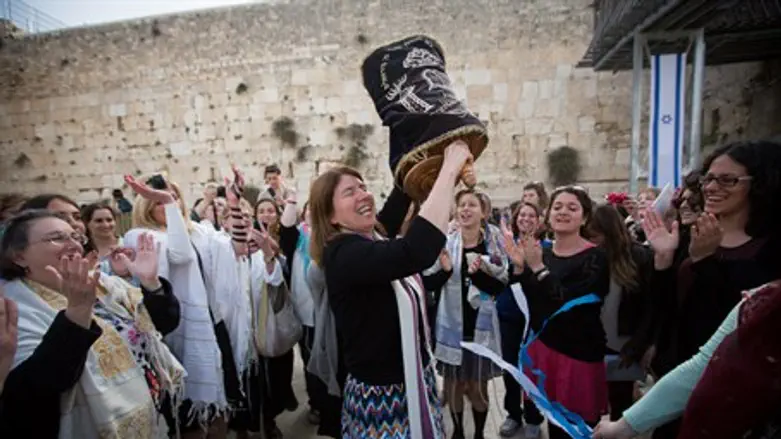
As an ever growing coalition crisis looms over the government decision to recognize the Reform movement, leaders of the movement in Israel issued a warning to Prime Minister Binyamin Netanyahu.
In the message to Netanyahu, reported on by Channel 2 on Tuesday, the Reform leaders warned that if the decision made in a government meeting three weeks ago to establish a second Reform prayer space at the Kotel (Western Wall) is rescinded, it will harm Judaism in the Diaspora.
While the Reform representatives demanded that the Kotel prayer space decision remain intact, they indicated they were willing to compromise on the decision to allow Reform conversions at public mikvaot (ritual baths).
According to their compromise, Reform converts would not use official mikvaot operated by the local religious councils.
The Reform leaders also demanded that Netanyahu condemn the criticism by haredi leaders against the Reform movement; haredi MKs in the coalition government have warned Netanyahu he must choose between them and the Reform movement.
Noting that Kotel Chief Rabbi Shmuel Rabinowitz, who initially promoted the agreement on the Reform prayer space, backtracked on his support, and that the Chief Rabbis refuse to talk with them on the matter, the Reform heads said they expect Netanyahu to speak with them.
Netanyahu clarified to the Reform leaders that he is working on a solution according to the report, but he said that he is working quietly behind the scenes for the benefit of the process.
Regarding the mikvaot matter, the United Torah Judaism party on Sunday got Knesset approval on a bill that would have the ritual baths only follow the guidelines of the Chief Rabbinate. The bill is an effort to cancel the Supreme Court's decision that public mikvaot must be open for use in all conversions, including conversions through the Reform and Conservative movements that do not adhere to Jewish law.
While the Reform movement has obtained several political victories in recent weeks, a Pew poll last week found the movement is not gaining traction in Israel.
The decision on the new prayer space, which comes in addition to the Ezrat Yisrael section established in 2013 by the government, has raised concerns as it removes an area in the southern part of the Kotel from the authority of the rabbinate, transferring it to the control of the Prime Minister's Office. Such a move is a breach of the status quo, by which the rabbinate maintains authority over holy sites.